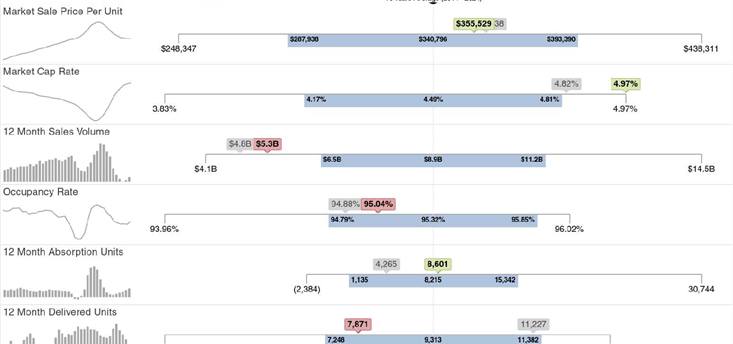Multi-Family Capital Markets
Los Angeles Multi-Family
10/11/20242 min read


Recent apartment sales activity has been modest, with $1.6 billion in sales during the third quarter, up from $1.2 billion in the second quarter. However, this is well below the average quarterly sales of $2.2 billion seen over the past decade. As in many markets, higher debt costs are limiting activity.
In the City of Los Angeles, sellers are facing an additional challenge: since April 2023, a new transfer tax of 4% applies to sales over $5.15 million and 5.5% for those over $10.3 million. This tax particularly affects developers and larger, more sophisticated buyers, who typically plan to exit their investments at some point. In contrast, many private buyers intend to hold onto their assets long-term, making the tax less impactful for them.
The effect of the transfer tax is evident in the numbers. In the second quarter of 2024, only about $660 million in properties were sold in the city, which is roughly a third of the average quarterly activity seen in 2022. Due to high debt costs and the new tax, most buyers are now seeking discounts from recent peak prices. Brokers report that buyers expect discounts of 15-30% compared to early 2022 pricing. The average market price is now around $360,000 per unit, down about 20%, confirming these trends.
While transaction levels have dropped across all buyer categories, private buyers have increased their share of the market. Historically, private buyers represented about two-thirds of all sales, but they now account for around 80% of acquisitions over the past year. Sales brokers note that private buyers have diverse interests, with a particular focus on properties not subject to local rent control ordinances.
In June, two private buyers purchased the Maya Apartments, a 72-unit building in Koreatown, for $30 million ($417,000 per unit) at a 5.25% in-place cap rate. The property, built in 2018, is not subject to city or state rent control. The seller, Omninet Capital, sold the property at a loss, having purchased it for $32.4 million ($450,000 per unit) in July 2020. The 2020 sale had a 4.3% in-place cap rate, illustrating the impact of rising debt costs on asset pricing.
Institutional buyers, private equity firms, and REITs have scaled back their activity. Historically, these groups accounted for nearly 30% of acquisitions, but they've dropped to around 15% of buyer activity in the past year. Sales brokers suggest that the transfer tax and increasing concerns about the local business climate have dampened interest. Investors are wary of recent challenges in evicting non-paying tenants and rent control measures that limit rent increases amid rising operating costs. For investors still considering purchases, expected returns must be sufficient to outweigh these concerns.
In August, investment manager FPA Multifamily acquired Arrive Wakaba, a 240-unit community in Little Tokyo, from J.P. Morgan Asset Management for $86.1 million ($359,000 per unit) at a 5.5% in-place cap rate. This sale price reflects a 25% decline from the previous sale price of $115.8 million ($482,000 per unit) in February 2020, when the in-place income yielded a 4.6% cap rate.
The outlook suggests continued price declines in the near term. Debt costs remain high, and modest rent growth and moderate renter demand are expected, making buyers more cautious in their underwriting approaches.
Source: CoStar
Contact us
MRC Realty LLC Headquarters
600 West 9th Street, Los Angeles, CA 90015
Phone #: 562-324-9840
DRE: 02120351
RED: S.0198102
Realty One Group West
1260 Corona Pointe, Suite 102, Corona, CA 92879
Phone #: 951-548-8400
DRE: 01896421
© 2024. All rights reserved.
